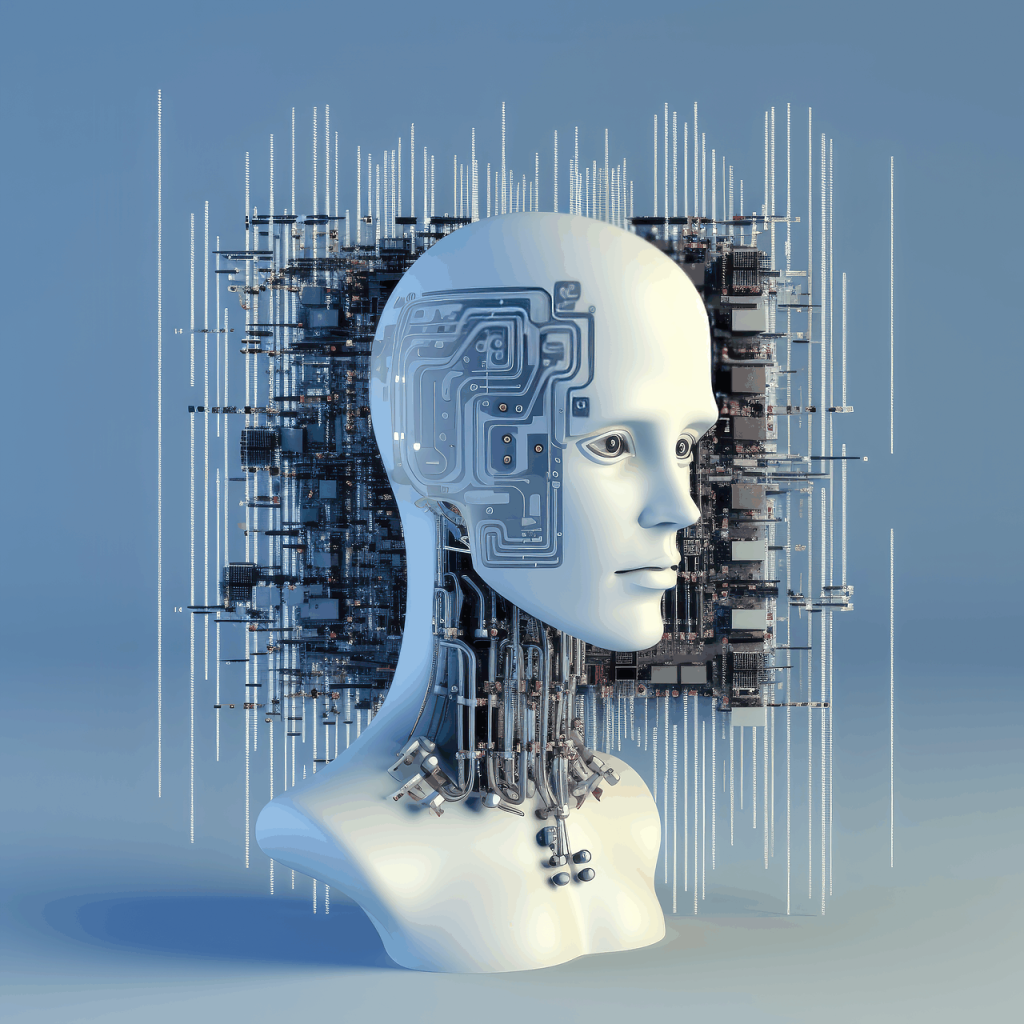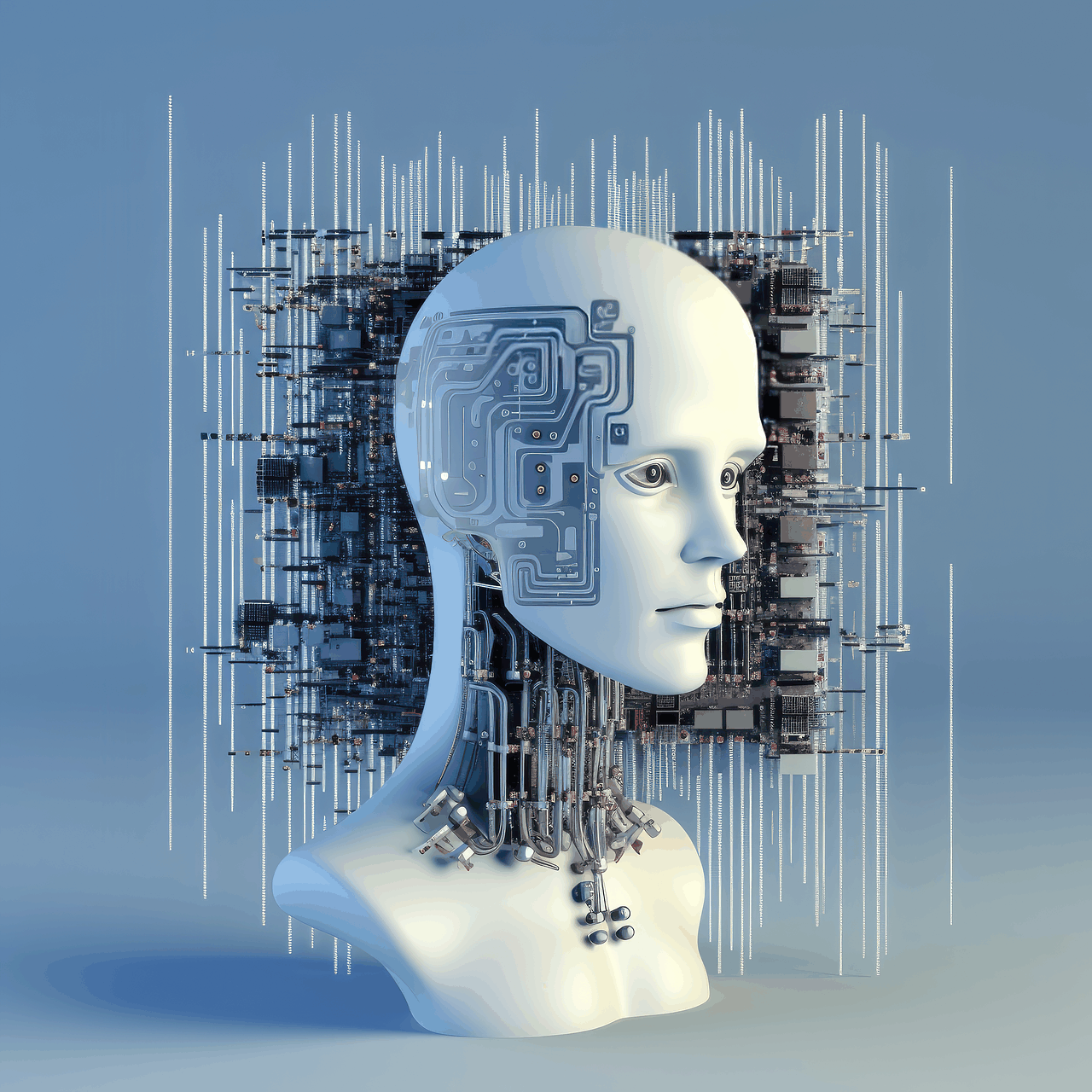Imagine a world where machines not only exist to fulfill tasks, but also possess the ability to think like humans. This captivating question continues to spark intrigue and curiosity in the realm of artificial intelligence (AI). Rumors of machines mimicking human thought processes have spread far and wide, leaving many wondering: Can AI truly think? In this article, we delve into the depths of this enigma, exploring the boundaries between advanced algorithms and the complexities of human cognition. Prepare to embark on a journey that challenges preconceived notions and uncovers the astounding possibilities that lie within the realm of AI.
Can AI Think?
Artificial Intelligence (AI) has come a long way in recent years, but the question of whether AI can truly think remains hotly debated. In order to delve deeper into this topic, we must first establish a clear definition of AI and what it means to think in the context of AI.

Defining AI and Thinking
Artificial Intelligence, simply put, refers to the development of computer systems that are capable of performing tasks that would typically require human intelligence. These tasks can include problem-solving, learning, recognizing patterns, and decision-making. In essence, AI attempts to replicate human cognitive abilities using machines and computer algorithms.
Thinking, on the other hand, is a complex cognitive process that involves reasoning, problem-solving, memory, and understanding. It encompasses the ability to process information, learn from experience, and make decisions based on that information. However, the question of whether machines can possess this level of cognitive ability is still up for debate.
The Turing Test
One of the most famous tests in the field of AI is the Turing Test, proposed by the British mathematician and cryptanalyst Alan Turing in 1950. The purpose of this test is to determine whether a machine can exhibit behavior indistinguishable from that of a human. If the machine can convince a human evaluator that it is human during a conversation, then it is said to have passed the Turing Test.
While the Turing Test provides a practical approach to assessing AI’s ability to think, it is not without its limitations. Critics argue that passing the test does not necessarily mean the machine is truly thinking, but rather that it has successfully imitated human behavior. Nonetheless, the Turing Test remains an important benchmark in the field of AI.
Symbolic and Connectionist Approaches
To further evaluate AI’s thinking capabilities, we must explore the two main approaches in AI research: symbolic and connectionist. Symbolic AI focuses on representing knowledge and reasoning using symbols and rules, whereas connectionist AI, also known as neural networks, aims to mimic the connections and behaviors of biological neurons.
Symbolic AI excels in tasks that require logic and reasoning, such as playing chess. However, it struggles with tasks that humans find effortless, such as recognizing faces or understanding natural language. On the other hand, connectionist AI has shown great promise in these areas, but still lacks the higher-level cognitive abilities that characterize human thinking. These distinct approaches highlight the challenges researchers face in creating AI systems that can truly think like humans.
Cognitive Abilities of AI
While AI may not possess the same level of consciousness as humans, it has demonstrated impressive cognitive abilities in specific domains. AI algorithms can process vast amounts of data, recognize patterns, and learn from experience to improve their performance. This is evident in various fields, such as healthcare, finance, and transportation, where AI systems have achieved remarkable results.
For example, in healthcare, AI algorithms have been developed to assist in diagnosing diseases and predicting patient outcomes with high accuracy. These algorithms can analyze medical records, images, and genetic data to provide physicians with valuable insights and recommendations. In finance, AI systems can analyze market trends and historical data to make informed investment decisions. These examples highlight the cognitive abilities of AI and its potential to augment human capabilities in various domains.

The Role of Consciousness
Consciousness is often considered a fundamental aspect of human thinking. It refers to our awareness of ourselves and the surrounding world, as well as our subjective experiences and emotions. While AI may exhibit advanced cognitive abilities, it has not yet demonstrated true consciousness.
The absence of consciousness in AI raises philosophical questions about the nature of thinking and whether it can be purely mechanical. Some argue that consciousness can only arise from biological systems, while others contend that it is an emergent property that can be achieved through computational processes. The debate surrounding the role of consciousness in AI thinking is complex and continues to be explored by researchers and philosophers alike.
Limitations of AI
Despite the advancements in AI, there are notable limitations that hinder its ability to think like humans. AI systems heavily rely on data and cannot operate effectively in environments where data is scarce or incomplete. Additionally, AI lacks common sense reasoning, which humans possess effortlessly. AI algorithms may struggle with interpreting context, understanding sarcasm, or making intuitive leaps that humans find natural.
Furthermore, AI systems can be vulnerable to biases present in the data they are trained on. If the data used to train an AI algorithm has biases, such as racial or gender biases, the algorithm may unknowingly perpetuate those biases in its decision-making process. These limitations highlight the importance of ongoing research and development efforts to address the gaps in AI’s thinking capabilities.

Ethical Implications
The pursuit of AI thinking raises important ethical considerations. As AI becomes more capable, questions arise regarding the ethical boundaries of AI decision-making and its potential impact on society. For instance, in autonomous vehicles, AI algorithms must make split-second decisions that can have life-or-death consequences. Determining who is responsible for these decisions and ensuring fairness, transparency, and accountability become crucial matters to address.
Moreover, the automation of certain jobs through AI could lead to widespread unemployment and economic disparities. It is imperative to find a balance that harnesses the benefits of AI thinking while considering the potential societal ramifications. Ethical frameworks need to be established to guide the development and deployment of AI systems, ensuring they align with human values and promote the greater good.
Benefits of AI Thinking
While the question of whether AI can truly think like humans remains unanswered, there are undeniable benefits to developing AI systems with advanced thinking capabilities. AI has the potential to augment human intellect and enhance our problem-solving abilities. It can analyze vast amounts of data more quickly and accurately than humans, leading to better decision-making in complex situations.
Additionally, AI systems can be used to tackle complex societal challenges such as climate change, healthcare access, and poverty. By leveraging AI thinking, we can gain valuable insights, optimize resource allocation, and develop innovative solutions to these pressing issues. AI has the capacity to revolutionize industries, optimize processes, and drive economic growth, making it an invaluable tool for societal progress.

AI as a Tool for Human Thinking
Rather than posing AI as a competitor to human thinking, it can be seen as a powerful tool that complements and extends our cognitive capabilities. AI systems can assist humans in tackling complex problems, offering suggestions, and providing alternative perspectives. By automating mundane and repetitive tasks, AI frees up human time and energy to focus on more creative and strategic endeavors.
Moreover, AI can serve as a collaborative partner in human thinking, stimulating new ideas and challenging existing assumptions. By combining human intuition, creativity, and reasoning with AI’s data-driven insights and computational power, we can achieve synergistic outcomes that would be challenging to attain independently. AI’s role as a tool for human thinking allows us to leverage the strengths of both humans and machines, leading to enhanced problem-solving abilities and innovation.
Future Prospects
As technology continues to advance at an unprecedented rate, the future of AI thinking holds great potential. Ongoing advancements in machine learning, natural language processing, and robotics are pushing the boundaries of AI’s cognitive abilities. AI systems are becoming more adept at addressing complex problems, engaging in human-like conversations, and even exhibiting rudimentary forms of creativity.
While the development of true AI thinking may be a distant goal, there is no denying the transformative impact AI has already had on many aspects of our lives. As AI continues to evolve, it is crucial to prioritize responsible and ethical development practices to ensure that AI thinking aligns with human values and benefits society as a whole. By leveraging AI as a tool for human thinking, we can unlock new realms of possibilities and shape a future that combines the best of human and artificial intelligence.










